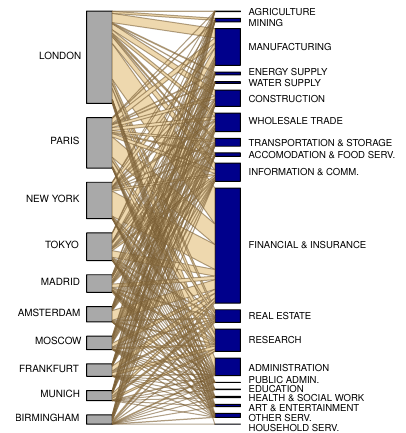Economic Specialization and the Nested Bipartite Network of City-Firm Relations
Antonios Garas, C'eline Rozenblat and Frank Schweitzer
Multiplex and Multilevel Networks (2019)
Research: Economic Geography
Abstract
How are economic activities linked to geographic locations? To answer this question, we use a data-driven approach that builds on the information about location, ownership and economic activities of the world's 3,000 largest firms and their almost one million subsidiaries. From this information we generate a bipartite network of cities linked to economic activities. Analysing the structure of this network, we find striking similarities with nested networks observed in ecology, where links represent mutualistic interactions between species. This motivates us to apply ecological indicators to identify the unbalanced deployment of economic activities. Such deployment can lead to an over-representation of specific economic sectors in a given city, and poses a significant thread for the city's future especially in times when the over-represented activities face economic uncertainties. If we compare our analysis with external rankings about the quality of life in a city, we find that the nested structure of the city-firm network also reflects such information about the quality of life, which can usually be assessed only via dedicated survey-based indicators.

